Manage Containers
Manage container types
- Before being able to create containers, the dispatcher will first have to create container types
- Navigate to Freights > Container Types tab
- This tab is where all the container types are listed
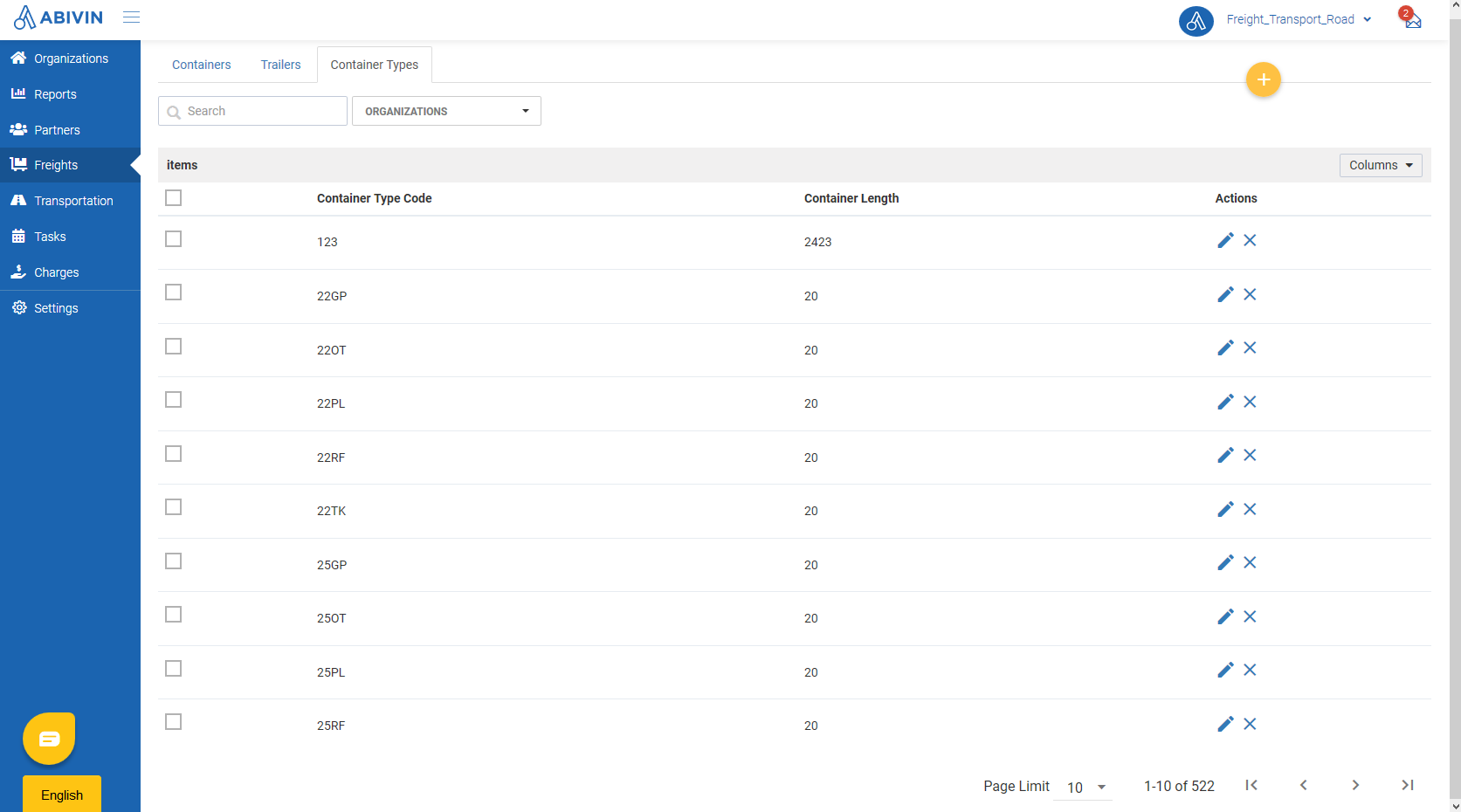
Create container type
Container type information fields
- A container type will have these essential information fields:
Information field | Description & Input |
|---|---|
Organization (Web form); Organization Code (Excel template) (Required) | 1. Description: |
Container Type Code | 1. Description: |
Container Length | 1. Description: |
- Below is the list of thirty common container types:
Container type | Description |
|---|---|
22GP | 20 feet long, 8 feet 6 inches tall general-purpose container |
22OT | 20 feet long, 8 feet 6 inches tall open-top container |
22PL | 20 feet long, 8 feet 6 inches tall platform container |
22RF | 20 feet long, 8 feet 6 inches tall reefer container |
22TK | 20 feet long, 8 feet 6 inches tall tank container |
25GP | 20 feet long, 9 feet 6 inches tall general-purpose container |
25OT | 20 feet long, 9 feet 6 inches tall open-top container |
25PL | 20 feet long, 9 feet 6 inches tall platform container |
25RF | 20 feet long, 9 feet 6 inches tall reefer container |
25TK | 20 feet long, 9 feet 6 inches tall tank container |
42GP | 40 feet long, 8 feet 6 inches tall general-purpose container |
42OT | 40 feet long, 8 feet 6 inches tall open-top container |
42PL | 40 feet long, 8 feet 6 inches tall platform container |
42RF | 40 feet long, 8 feet 6 inches tall reefer container |
42TK | 40 feet long, 8 feet 6 inches tall tank container |
45GP | 40 feet long, 9 feet 6 inches tall general-purpose container |
45OT | 40 feet long, 9 feet 6 inches tall open-top container |
45PL | 40 feet long, 9 feet 6 inches tall platform container |
45RF | 40 feet long, 9 feet 6 inches tall reefer container |
45TK | 40 feet long, 9 feet 6 inches tall tank container |
L2GP | 45 feet long, 8 feet 6 inches tall general-purpose container |
L2OT | 45 feet long, 8 feet 6 inches tall open-top container |
L2PL | 45 feet long, 8 feet 6 inches tall platform container |
L2RF | 45 feet long, 8 feet 6 inches tall reefer container |
L2TK | 45 feet long, 8 feet 6 inches tall tank container |
L5GP | 45 feet long, 9 feet 6 inches tall general-purpose container |
L5OT | 45 feet long, 9 feet 6 inches tall open-top container |
L5PL | 45 feet long, 9 feet 6 inches tall platform container |
L5RF | 45 feet long, 9 feet 6 inches tall reefer container |
L5TK | 45 feet long, 9 feet 6 inches tall tank container |
Edit container type information
- Please refer to the CRUD functions article to know the general steps about updating objects in Abivin vRoute
Delete container type
- Please refer to the CRUD functions article to know the general steps about deleting objects in Abivin vRoute
Manage containers
- Navigate to Freights > Containers tab
- This tab is where all the containers are listed
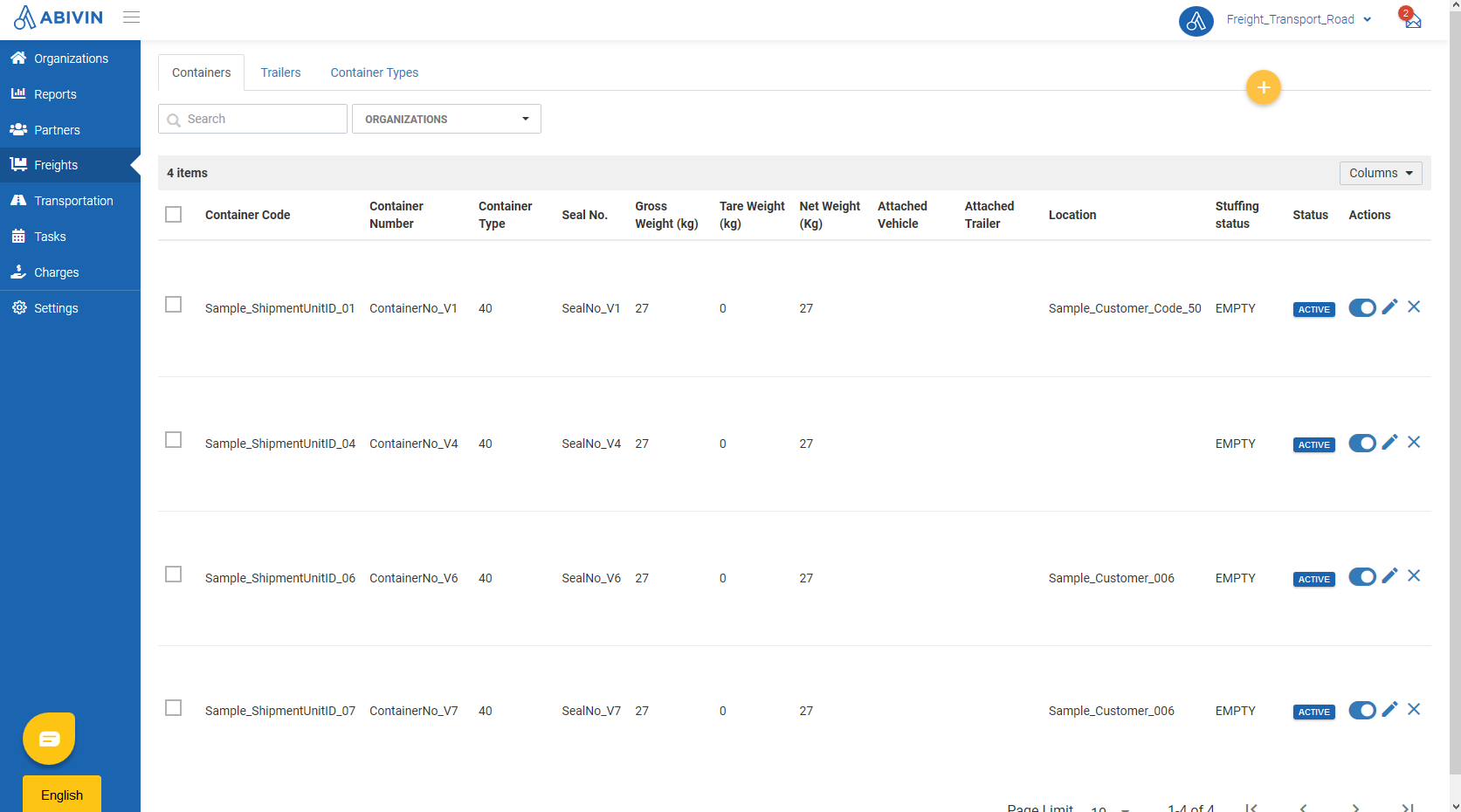
Create container
- Please refer to the CRUD functions article to know the general steps about creating objects in Abivin vRoute
- Below are the information fields required when creating a container
Information field | Description & Input |
|---|---|
Organization (Web form); Organization Code (Excel template) (Required) | 1. Description: |
Container Code | 1. Description: |
Seal No. | 1. Description: |
Container Type | 1. Description: |
Tare Weight | 1. Description: |
Net Weight (Web form); Total Weight (Excel template) | 1. Description: |
Gross Weight (Web form); Max Gross (Excel template) | 1. Description: |
- After being created, a container will have additional information fields:
Information field | Description |
|---|---|
Attached Vehicle | The truck tractor that is currently carrying the container |
Attached Trailer | The trailer that is currently carrying the container |
Location | The location where the container is currently placed |
Stuffing status | Current stuffing status of the container |
Edit container information
- Please refer to the CRUD functions article to know the general steps about updating objects in Abivin vRoute
Delete container
- Please refer to the CRUD functions article to know the general steps about deleting objects in Abivin vRoute
Change container status
- All containers will automatically have their status as Active after being created.
- If you want to change status for some of them, click on icon under Action column at the end of the container row to switch its status from Active to Deactive or vice versa.
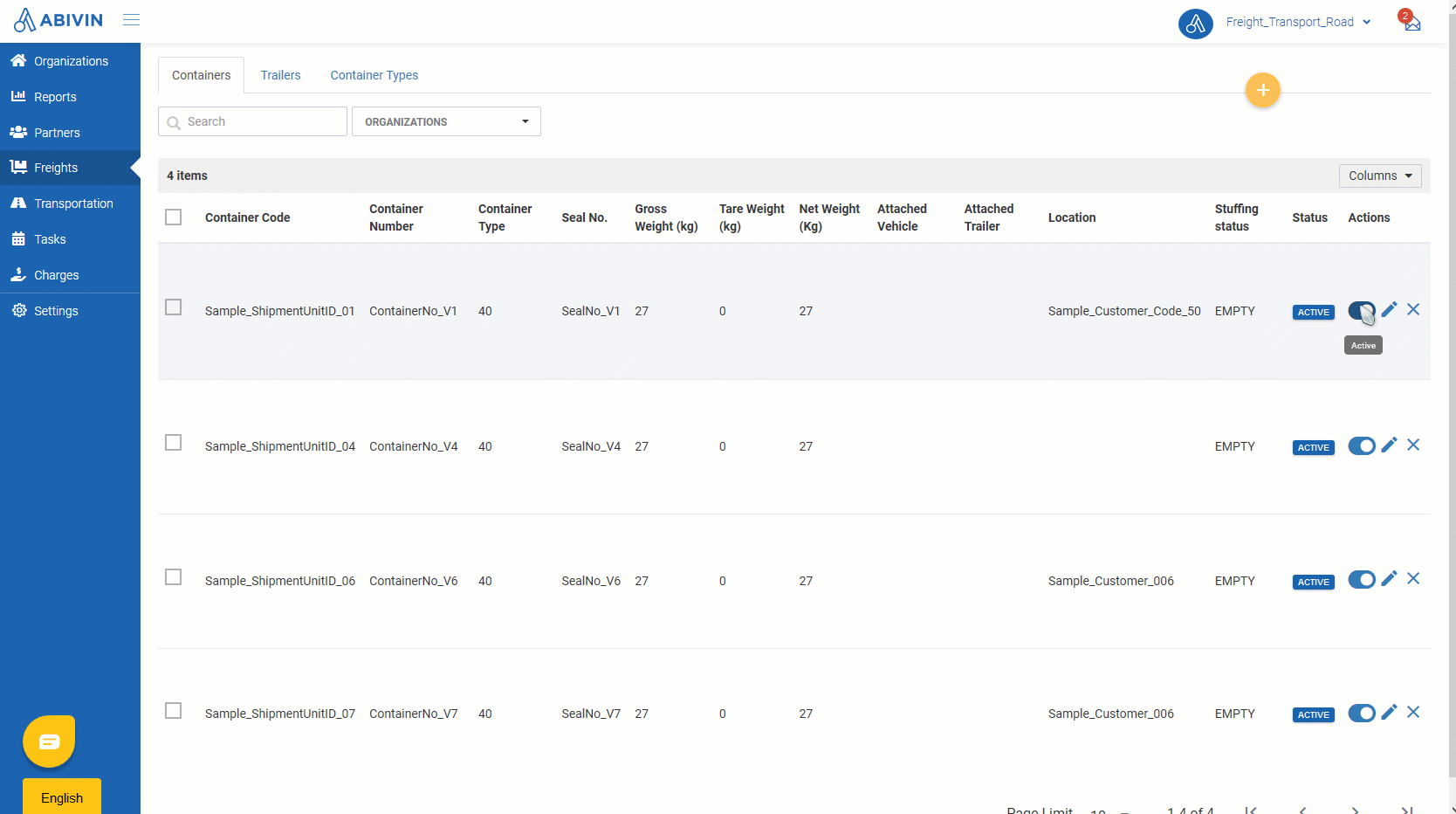
Search container
- To search for a specific container, input the Container Code of that container into the search field
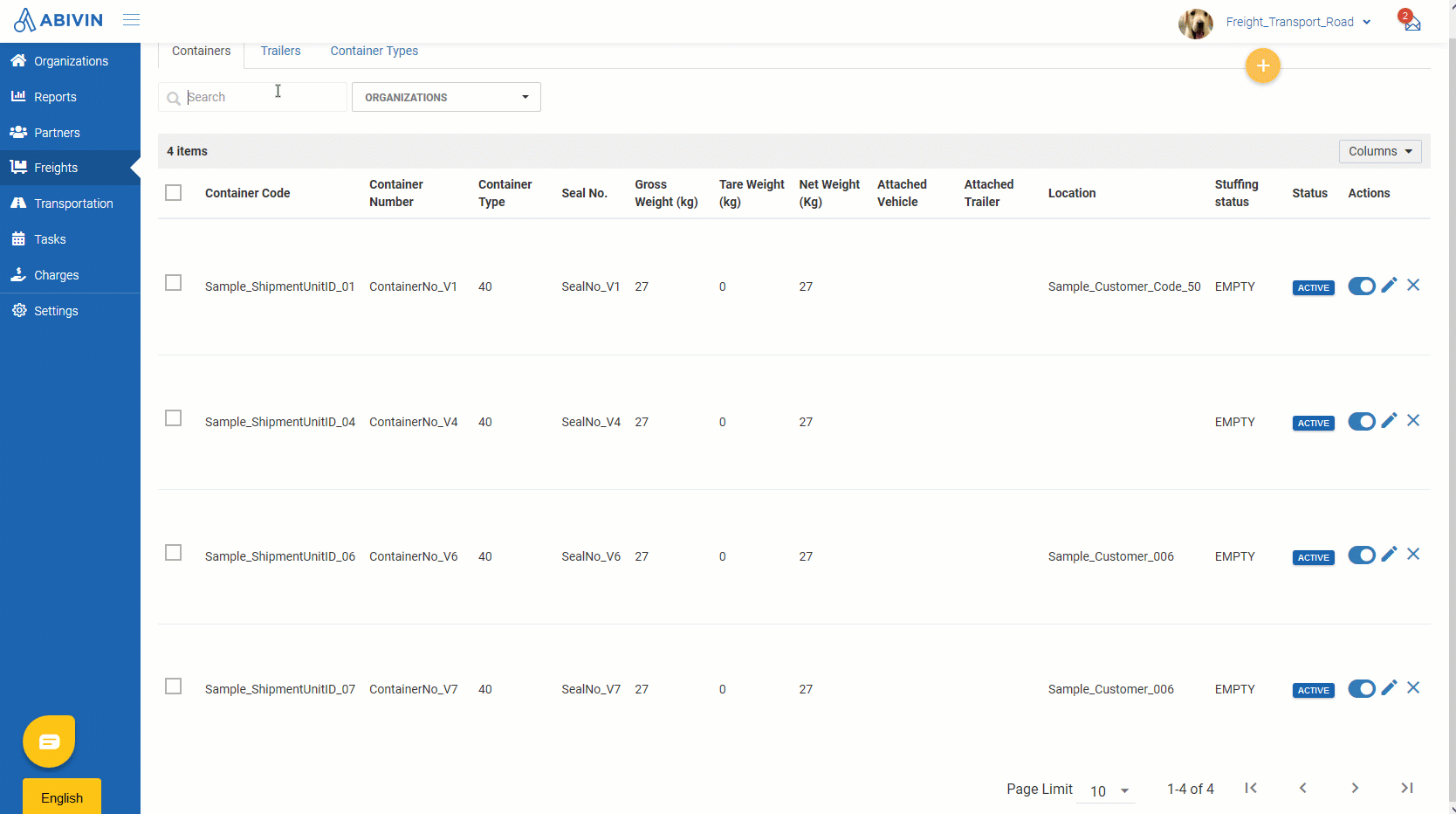
Show or hide information columns
- You could show or hide specific information fields of the containers by clicking on the Columns button, then tick on the boxes on the drop down menu. Each box corresponds to one information field
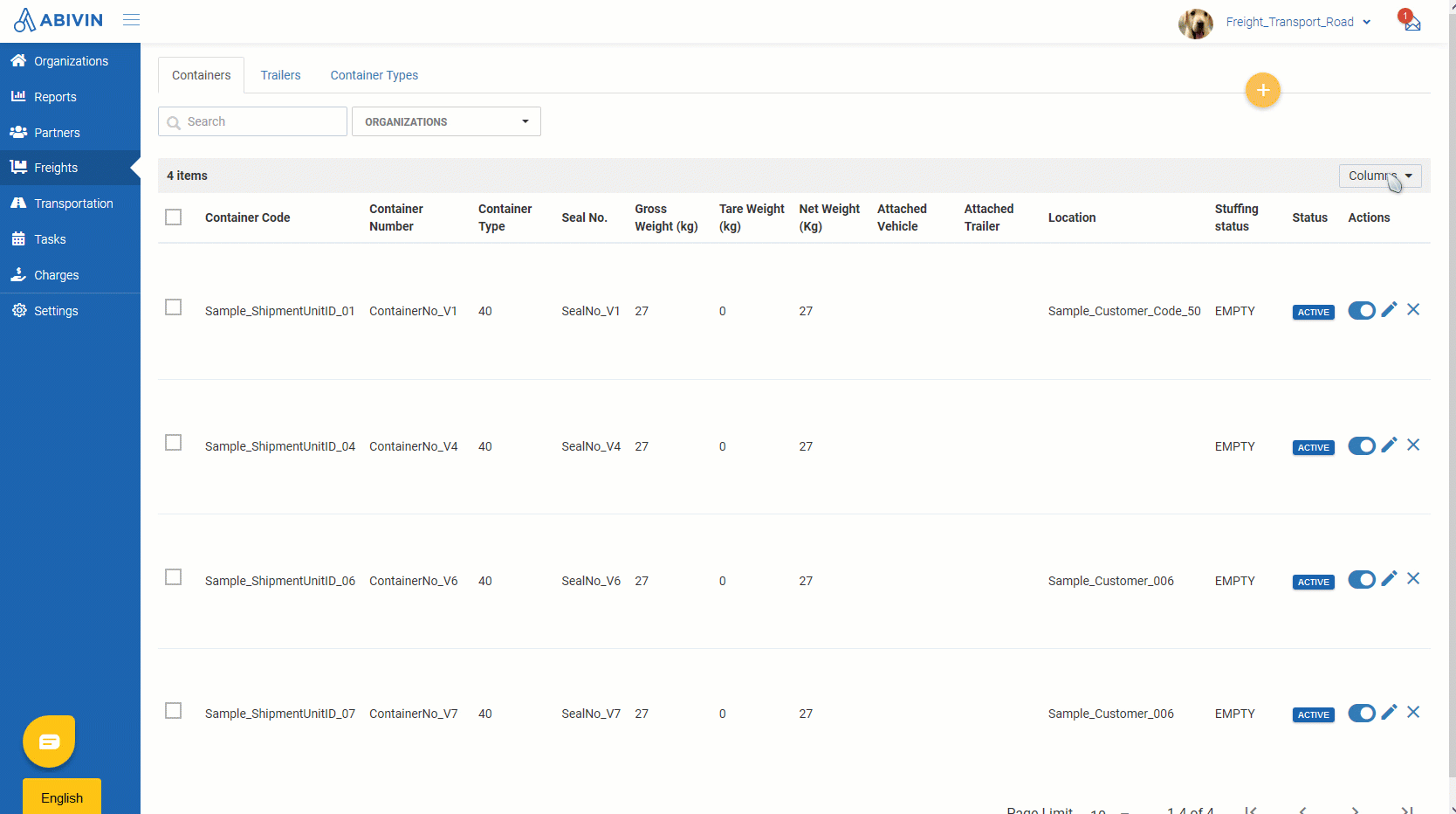
Updated about 1 month ago
